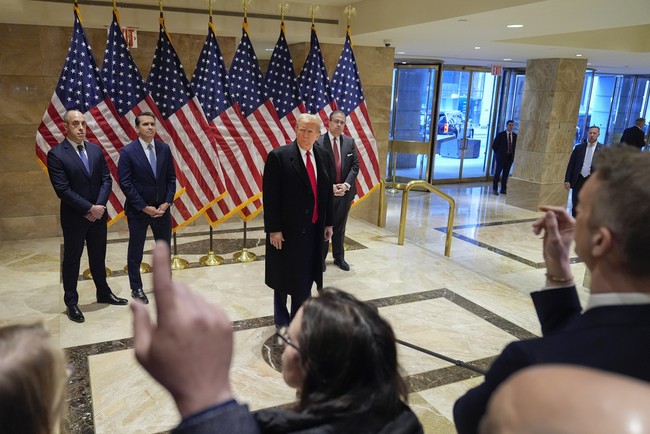The first criminal trial against former President Donald Trump is scheduled to commence on April 15, with Judge Juan Merchan releasing a questionnaire for jury selection. The questionnaire seeks to gauge potential jurors’ opinions on whether a former president can be criminally charged and their feelings about Trump’s treatment in the case.
Trump’s attempts to delay the trial have been unsuccessful, and Judge Merchan aims to ensure impartiality among prospective jurors, especially regarding their views on the former president.
The questionnaire includes inquiries about jurors’ attendance at Trump rallies, affiliation with groups like the Proud Boys or Antifa, and involvement with political entities associated with Trump. Additionally, jurors are asked about their familiarity with Trump’s books, their ability to set aside prior knowledge of the case, and their opinions on legal limits related to political contributions.
Judge Juan Merchan released his questionnaire of 42 questions for potential jurors ahead of Trump’s upcoming hush money trial.
Some of the questions:
-“Do you have any feelings or opinions about how Mr. Trump is being treated in this case?”
– “What do you do for a living?”
-… pic.twitter.com/D0Dj8PzBiB— Elizabeth Weibel (@elfaddis) April 9, 2024
Judge Merchan’s questionnaire consists of 42 questions, including inquiries about jurors’ occupations, marital status, hobbies, criminal history, and scheduling conflicts. He plans to excuse jurors who self-identify as unfair or partial, aiming to streamline the jury selection process. Merchan also disclosed the instructions he intends to read to the jury, outlining the allegations against Trump related to falsifying business records to conceal payments to Michael Cohen.
The trial represents a significant development in the ongoing legal challenges against Trump, transitioning from civil matters to a criminal trial. Judge Merchan’s perceived bias against Trump raises concerns about the fairness of the proceedings, prompting speculation about the potential for a biased trial. The trial’s outcome will be closely watched, especially given the contentious nature of Trump’s presidency and the political implications of the case.
Trump (Credits: NBC News)
Despite Trump’s denial of the allegations, the trial marks a pivotal moment in his legal battles, with potential implications for his political future. The intense scrutiny surrounding the trial reflects the divisive nature of Trump’s presidency and the ongoing efforts to hold him accountable for alleged wrongdoing.
As the trial unfolds, questions about judicial impartiality and the rule of law will continue to be debated, shaping perceptions of justice in the United States.
